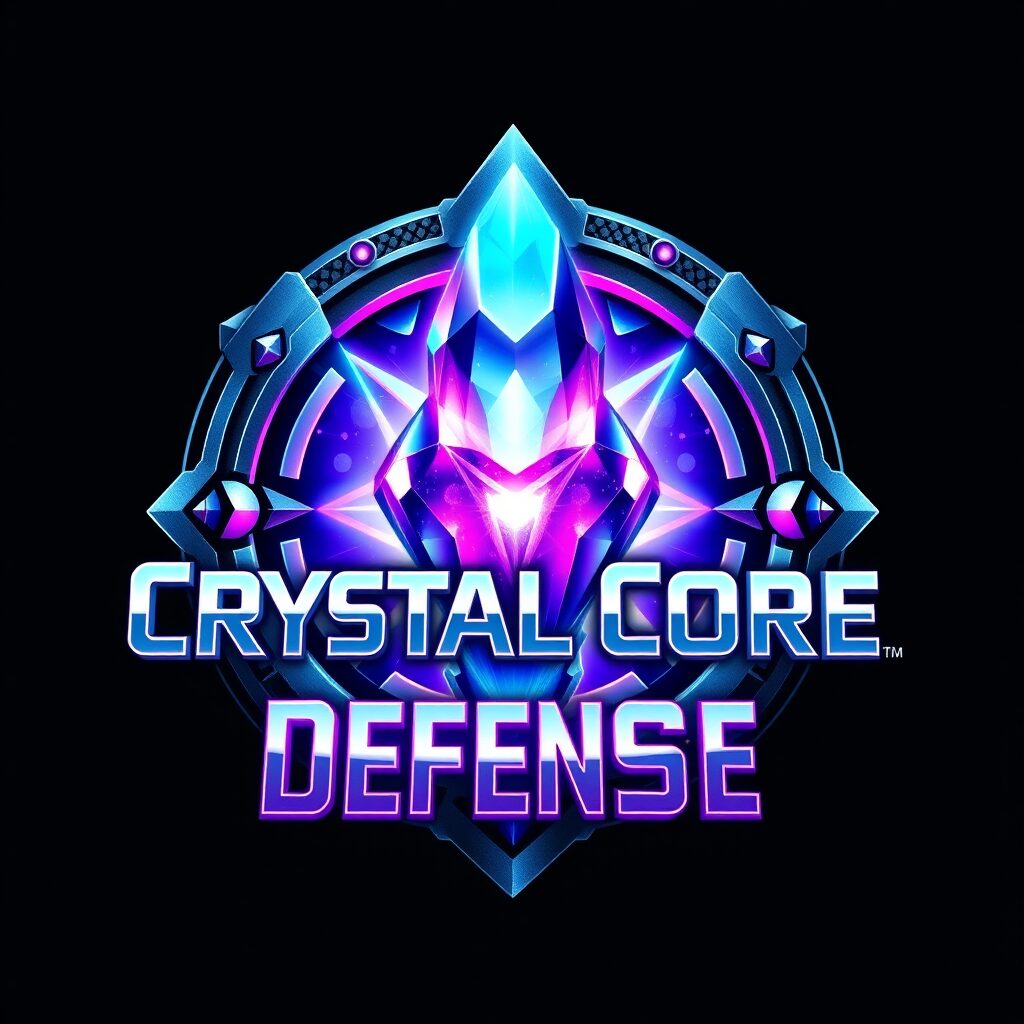AI-driven Dynamic Difficulty in Video Games
As a game developer, it’s exciting to see AI-driven Dynamic Difficulty in Video Games. With each significant milestone, we can witness the growth of AI’s role in gaming. One area where AI is bringing about a new era in gaming is dynamic difficulty. By personalizing player experience and influencing game design, we can enhance player engagement and improve the overall gameplay experience. In this blog post, we will explore the intersection of AI and video games, highlighting real-world applications of AI in popular video games and cloud gaming services.

The Emergence of AI in Video Games
The integration of artificial intelligence (AI) has revolutionized the gaming industry, enhancing gameplay and creating immersive experiences. AI-driven non-playable characters (NPCs) provide realistic interactions with players, adapting to their choices and actions. Machine learning enables adaptive difficulty systems, ensuring a challenging experience that matches the player’s skill level. Additionally, AI-powered graphics push the boundaries of visual realism, bringing modern games to life.
AI-driven Dynamic Difficulty in Video Games
The Early Stages: AI’s Introduction in Gaming
In the early stages of AI’s introduction in the gaming world, developers focused on implementing basic enemy behaviors. They utilized finite state machines to control the actions of non-player characters (NPCs) in early games. However, as gaming evolved, AI opponents gradually adapted to the player’s skill level, providing a more challenging experience. The integration of artificial intelligence also allowed for the implementation of procedural content generation, enhancing replayability.
AI-driven Dynamic Difficulty in Video Games
Significant Milestones: Growth of AI in the Gaming Industry
In recent years, the gaming world has witnessed significant growth in the integration of artificial intelligence (AI) technologies. Advances in deep learning have paved the way for more complex behaviors in NPCs, enhancing the immersion for gamers. Moreover, virtual reality and augmented reality have expanded the potential of AI, creating more interactive and realistic gaming experiences. The role of AI in gaming has also extended to natural language processing, allowing for more immersive storytelling.
AI-driven Dynamic Difficulty in Video Games
AI and Dynamic Difficulty: A New Era in Gaming
AI and dynamic difficulty have revolutionized the gaming world, offering personalized experiences for gamers. By analyzing player actions and choices, AI can adapt gameplay to each player’s skill level, providing tailored challenges that enhance engagement and enjoyment. The integration of artificial intelligence in modern games has paved the way for a more immersive and interactive playthrough. With AI-powered gameplay, players can expect an enjoyable and engaging experience that pushes their abilities to new heights.
AI-driven Dynamic Difficulty in Video Games
Role of AI in Personalizing NPC Experience
AI in gaming has revolutionized the way players experience games. By analyzing player choices, AI creates personalized gameplay experiences. Dynamic difficulty adjusts the game’s challenge level based on player performance, ensuring a balanced and enjoyable experience. AI-driven game content adapts to individual preferences, providing a tailored and immersive gaming environment. Thanks to the integration of AI, modern games can offer personalized storytelling and character interactions.
AI-driven Dynamic Difficulty in Video Games
Influencing Graphics in Game Design through AI
AI plays a crucial role in shaping the world of gaming. By utilizing AI algorithms, game designers are able to create more immersive and compelling gaming experiences. The integration of artificial intelligence enables the development of realistic and intelligent non-player characters (NPCs), enhancing the overall gameplay. Additionally, AI-driven decision-making affects the game’s narrative and outcomes, providing players with unique and personalized experiences.
The Effect of AI on Gameplay and Player Interaction
AI revolutionizes gameplay and player interaction in modern games. By enhancing player engagement through realistic and challenging gameplay, gamers are constantly pushed to improve their skills. AI opponents adapt to player strategies, ensuring varied experiences and keeping players on their toes. AI-powered NPCs offer dynamic and interactive conversations, making the gaming world more immersive.
AI-driven Dynamic Difficulty in Video Games
Enhancing Player Engagement with AI Immersion
In the gaming world, AI is revolutionizing player engagement. Through sophisticated algorithms, AI analyzes gamers’ behavior and provides personalized challenges. AI opponents intelligently adapt their strategies to match the player’s skill level, ensuring a consistently engaging experience. The integration of artificial intelligence into game mechanics creates a sense of immersion and realism, capturing the player’s attention and investment in the virtual world. With adaptive difficulty systems, players are continuously challenged, making every playthrough unique.
Impact of AI on Game Strategies and Decision-Making
AI opponents in video games have revolutionized the gaming world by employing advanced strategies and decision-making. Through the analysis of player actions, AI algorithms can predict and counter strategies in real-time, enhancing the challenge and depth of gameplay. The integration of artificial intelligence has led to adaptive difficulty systems that dynamically adjust the game’s strategic complexity based on the player’s choices. This encourages strategic thinking and decision-making, making modern games more immersive and engaging for gamers.
AI-driven Dynamic Difficulty in Video Games
What does AI-driven Dynamic Difficulty bring to Video Games?
AI-driven dynamic difficulty in video games brings a personalized gaming experience by tailoring challenges to match each player’s skill level. It ensures a balanced and fair gameplay experience through adaptive difficulty. This system adds replay value as it adjusts the challenge as the player improves, enhancing player satisfaction and enjoyment.
Customized Challenges and Adaptive Difficulty Simulation
AI algorithms have the ability to create customized challenges for gamers based on their behavior and choices. Adaptive difficulty systems play a crucial role in adjusting the game difficulty in real-time to keep players engaged. With AI-driven dynamic difficulty, the gaming experience is taken to a whole new level as challenges are tailored to individual skill levels. Machine learning enables AI systems to analyze players’ actions and adjust game content accordingly, making modern games more immersive than ever before.
AI-driven Dynamic Difficulty in Video Games
Improving Player Retention with AI-Driven Dynamic Difficulty
AI-powered dynamic difficulty enhances player retention by providing a challenging yet enjoyable gaming experience. Adaptive difficulty systems ensure that the game remains engaging for players of all skill levels. Leveraging AI algorithms, the game analyzes player performance to dynamically adjust the difficulty level, offering a personalized gameplay. Additionally, AI opponents create realistic and challenging gameplay experiences. With dynamic difficulty, each playthrough presents unique challenges, increasing replayability and keeping gamers hooked. The integration of artificial intelligence in modern games revolutionizes the gaming world, enhancing player engagement and satisfaction.
AI-driven Dynamic Difficulty in Video Games
Real-world Applications of AI in Video Gaming
AI is revolutionizing game development, enhancing the realism and immersion of virtual worlds. AI-powered graphics algorithms create stunning visual effects and lifelike simulations, captivating gamers. The integration of AI in procedural content generation allows for infinite possibilities in game environments, keeping players engaged and excited. AI-driven storytelling adapts the game’s narrative to player choices, further enhancing player engagement. With advancements in AI, the future of gaming looks promising, as it continues to play a vital role in game design and development. The gaming world is witnessing the incredible potential of artificial intelligence.
Case Study: AI in Popular Video Games
The rise of AI-driven NPCs in recent years has revolutionized popular video games. Through advanced AI algorithms, non-playable characters (NPCs) now exhibit human-like intelligence and realistic behaviors, challenging gamers to new heights. Games like “The Last of Us” and “Red Dead Redemption 2” showcase AI opponents that provide an immersive and challenging gameplay experience. The integration of AI-powered decision-making adds depth and complexity to game worlds, transforming player experiences and raising the bar for game development. The role of artificial intelligence in modern games cannot be underestimated, as it enhances player engagement and adapts to player’s choices and actions.
Insights from Game Developers: Implementing AI in Video Games
Game developers in the gaming world are well aware of the potential of artificial intelligence (AI) in enhancing player experiences. They understand that AI technologies like deep learning and machine learning are driving advancements in game development. When integrating AI into video games, game developers aim to strike a balance between realism and player engagement. By leveraging AI, developers can create immersive and adaptive game environments that respond to players’ choices and actions. The role of AI in modern games is constantly evolving as developers continue to explore its possibilities in creating memorable gaming experiences.
The Intersection of AI and Gaming Platforms
The gaming world is witnessing a revolution with the integration of artificial intelligence (AI) into gaming platforms. AI algorithms analyze gamers’ behavior, allowing for personalized recommendations and content that cater to individual player’s choices. Cloud gaming services are being transformed by AI, enabling seamless streaming and adaptive gameplay. Moreover, AI-powered voice assistants enhance player interactions with gaming platforms, creating a more immersive and interactive experience. As the role of AI continues to evolve in the gaming industry, we can expect the integration of artificial intelligence to enhance player experiences and shape the future of gaming consoles.
The Role of AI in Cloud Gaming Services
AI in cloud gaming services plays a transformative role, elevating gameplay experiences across various devices. By leveraging artificial intelligence, game streaming is optimized to deliver seamless and lag-free performance, ensuring gamers can enjoy a truly immersive environment. Furthermore, AI-driven matchmaking systems pair players based on skill level and preferences, enhancing the competitive aspect of gameplay. Personalized recommendations, derived from analyzing player behavior, improve the overall gaming experience. Additionally, AI-powered fraud detection safeguards against data security breaches, ensuring fair play in cloud gaming services. The integration of AI revolutionizes the gaming world, offering players dynamic and engaging experiences.
AI and the Future of Gaming Consoles
The integration of artificial intelligence (AI) into gaming consoles has brought about significant advancements in graphics, performance, and overall gaming experience. AI algorithms have the ability to optimize gameplay based on players’ skill levels and preferences, creating a more personalized and enjoyable gaming session. Moreover, AI-powered virtual assistants provide voice control and personalized recommendations, further enhancing the player’s choices and immersion in the gaming world. The future of gaming consoles lies in the seamless integration of AI and other emerging technologies, enabling realistic simulations and immersive experiences that redefine modern games. The role of AI in shaping the future of gaming consoles is undeniable, revolutionizing the way gamers interact with their favorite titles.
How does AI influence the Gaming Community and E-Sports?
AI’s influence on the gaming community and esports is undeniable. Intelligent opponents provided by AI are transforming the competitive gaming landscape. AI-powered analytics offer insights into player behavior and strategies, while real-time analysis and predictions enhance the spectator experience in esports. Matchmaking systems ensure fair competition, and AI-driven coaching tools help players improve their skills.
AI’s Impact on Competitive Gaming and E-Sports
AI technologies have revolutionized the gaming world, particularly in competitive gaming and e-sports. Gamers now benefit from AI-powered algorithms that can accurately assess player skill levels. These algorithms analyze vast amounts of gameplay data to identify patterns and optimize strategies. Additionally, AI-driven live streaming platforms provide interactive and engaging experiences for e-sports fans, while AI-driven analytics offer insights into player performance and strategies. The integration of artificial intelligence in these areas enhances competition and spectator engagement, ensuring the future of e-sports is bright.
Fostering Gaming Communities with AI
AI-powered chatbots enhance player engagement and provide real-time support in the gaming world. By analyzing player behavior, AI algorithms create personalized experiences tailored to the player’s choices. Additionally, AI-driven matchmaking systems ensure fair and balanced gameplay, fostering a positive environment for gamers. Through AI, communication and collaboration among players in online gaming communities are facilitated, enhancing social interactions. Furthermore, AI analyzes player feedback to improve game design and address issues, making the integration of artificial intelligence crucial in modern games. The role of AI in fostering gaming communities is essential in creating a more immersive and enjoyable gaming experience.
Unveiling the Potential: Future Prospects of AI in Gaming
AI advancements like deep learning and machine learning are set to revolutionize game development. The integration of artificial intelligence in virtual reality (VR) and augmented reality (AR) will create truly immersive gaming experiences. With AI technologies becoming more sophisticated, gamers can expect realistic graphics and physics in modern games. Additionally, AI-driven procedural content generation will enhance the replayability of games, while AI-powered storytelling will enable dynamic and personalized narratives based on player’s choices and actions. The future prospects of AI in the gaming world are incredibly exciting and hold immense potential for enhancing player experiences.
Upcoming AI Technologies for Gaming
- Natural language processing (NLP) enables gamers to interact with modern games using voice commands, enhancing their immersion in the gaming world.
- AI opponents with human-like intelligence elevate gameplay experiences by providing challenging and dynamic competition that adapts to player’s choices and actions.
- AI-based finite state machines create intelligent non-player characters (NPCs) that offer realistic and engaging interactions within the game’s environment.
- AI algorithms dynamically adjust the difficulty level of playthroughs, ensuring that players are consistently challenged based on their skill level.
- Integration of artificial intelligence also plays a crucial role in safeguarding players’ information and privacy in the online gaming community.
How Will AI Continue to Shape the Gaming Experience?
AI’s influence on the gaming experience is set to grow. Expect more complex NPCs, adaptive difficulty systems, immersive environments, personalized game worlds, and enhanced realism. The future of gaming will be shaped by AI, offering engaging gameplay and expanded player choices.
Conclusion
To conclude, AI-driven dynamic difficulty is revolutionizing the gaming industry. It allows for a personalized player experience, enhancing engagement and improving player retention. AI not only influences game design but also impacts gameplay, strategies, and decision-making. The implementation of AI in popular video games has shown promising results, and game developers are actively exploring its potential. Furthermore, AI is shaping the gaming community and e-sports, fostering competitive gaming and creating strong gaming communities. Looking ahead, the future prospects of AI in gaming are exciting, with upcoming technologies set to further enhance the gaming experience.
Follow on Facebook, Twitter, Instagram and Pinterest.




